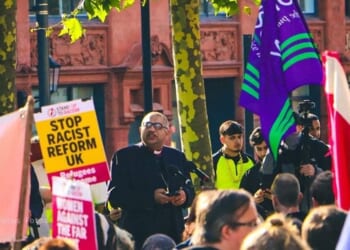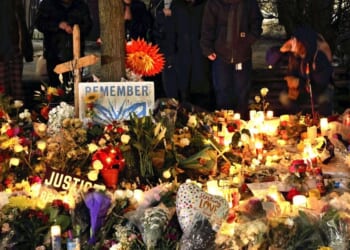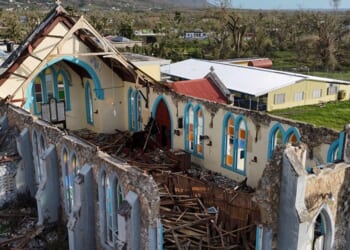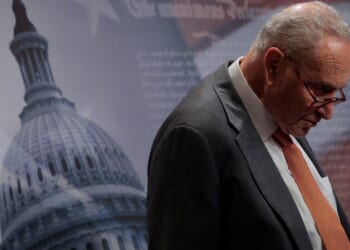NEWS that Israeli and Hamas negotiators had reached a potential deal to halt the war in Gaza has been welcomed by bishops in the Church of England. They said that a “fundamental shift in attitudes and behaviour” must ensue.
Late on Wednesday, President Donald Trump announced, on social media, that Israel and Hamas had agreed the first phase of a plan put forward by the United States (News, 3 October).
The Israeli cabinet is due to discuss the plan at 3 p.m. on Thursday, and a government spokesperson said that, if the cabinet votes to approve the deal, a ceasefire would begin within 24 hours.
The Bishop of Southwark, the Rt Revd Christopher Chessun, who is the Church of England’s lead bishop for the Middle East, welcomed the news in a joint statement with the Bishops of Norwich, Chelmsford and Gloucester, all of whom have visited the region since the war in Gaza began two years ago.
“After two years of unimaginable death and destruction now is the time for all parties to turn away from war and commit to peace,” they said on Thursday.
“A credible peace must start with a ceasefire, but it will not last without a fundamental shift in the attitudes and behaviours that, for too long, have maintained Israel’s occupation of Palestinian territory and thwarted Palestinian self-determination and statehood.”
They said that what had happened in Gaza in the past two years “must never be allowed to happen again, anywhere”, and called for international law to be upheld. “Where those laws have been broken, those responsible must be held accountable, even after the war’s end,” they said.
The attacks on Israel, which took place on 7 October 2023, and the taking of more than 250 hostages, must also “never be repeated anywhere”, they said.
The bishops called on the UK Government and the international community to “work tirelessly” towards the goal of ensuring that Hamas “fully commit to decommissioning their arms and dismantling their military capabilities”.
At the same time, it was necessary to secure “the necessary commitments from Israel to end the occupation”, they said. Settler violence in the occupied West Bank must cease, they said, and “the settlement-expansion programme must be reversed.”
Churches in the Holy Land, and Palestinian Christians in particular, had a important role to play in the peace process, they said, and vowed to stand in solidarity.
“A lasting peace is not one that that is imposed by outside powers, but one that is built and owned by the affected communities themselves.”
World leaders reacted with relief to reports that a deal had been reached. Sir Keir Starmer called on all sides to “meet the commitments they have made, to end the war, and to build the foundations for a just and lasting end to the conflict”.
The UN Secretary General, António Guterres, said that the deal was a “momentous opportunity”, and the under-secretary general of humanitarian affairs, Tom Fletcher, suggested that the first steps would be to “get the hostages out and surge aid in — fast”.
The Israeli Prime Minister, Benjamin Netanyahu, said that the agreement of a deal was a “great day for Israel”. The President of the West Bank-based Palestinian Authority, Mahmoud Abbas, said that he hoped it would be a “prelude to reaching a permanent political situation”.

















